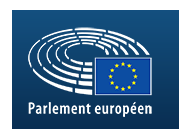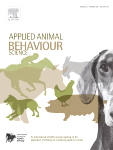What activities is the FRCAW tasked with?
The FRCAW is the body designated by the French Ministry of Agriculture to provide technical expertise and to contribute to the dissemination of research and innovation in the field of animal welfare in France.
Governance and operation
For further details on the governance and operation of the FRCAW and the duties of each participating member within this framework, please go to the "Governance" section.
What is FRCAW's legal status?
The FRCAW brings together bodies specialising in research, development and training under a five-year agreement. It currently has no legal identity.
Its operation is funded by the French Ministry of Agriculture.
Who can call on the services of the FRCAW? What topics are covered?
Only French organisations and bodies (public, private or voluntary) may request assistance from the FRCAW.
The FRCAW's mission is to provide responses to requests that serve the collective interest.
The request sponsor must make a formal request for expert services in writing to the Steering Committee of the FRCAW.
Is the FRCAW the only body of its kind in Europe or in the world?
Several European Union Member States have established national reference centres on animal welfare (Italy, Germany, Finland, Sweden, Denmark...). Part of the FRCAW's remit is act as a member of the European network of National Reference Centres (NRCs).
The FRCAW should not be confused with :
- The European Union Platform on Animal Welfare
The European Platform on Animal Welfare brings together 75 stakeholder representatives (animal welfare non-profit associations, scientific bodies, representatives of EU Member States and the EEA (European Economic Area) countries, international organisations and EFSA (European Food Safety Authority)) to pool their experience and contribute to the improvement of animal welfare.
Further information: https://ec.europa.eu/food/animals/welfare/eu-platform-animal-welfare_en
- France's Animal Welfare Strategy 2016-2020
In 2016 the French Ministry of Agriculture decided to adopt a national strategy on animal welfare developed in partnership with the professional and voluntary sectors.
This strategy is a French Ministry of Agriculture Horizon 2020 initiative on the theme of animal welfare that aims to place animal welfare at the heart of sustainable practice. The creation of the FRCAW forms part of this strategy.
Further information (in French): https://agriculture.gouv.fr/2016-2020-une-strategie-globale-pour-le-bien-etre-des-animaux-en-france
- The animal welfare expert group of CNOPSAV, the French national committee for animal and plant health.
CNOPSAV acts as an advisory body to the French Ministry of Agriculture on health policies. Within CNOPSAV, an expert subgroup on animal welfare issues has been created with members drawn from the scientific, professional and voluntary sectors. The majority of the FRCAW partners are members of the CNOPSAV expert group.
- The National Abattoir Ethics Committee of the French National Food Council
The National Abattoir Ethics Committee (CNEAb) is a consultative body of the French National Food Council (CNA), created in January 2017.
Its mission is to provide a central forum for discussion of developments in legislation and regulations relating to animal welfare in abattoirs.
More info at: https://cna-alimentation.fr/groupes-de-concertations-et-travaux/
- Animal Welfare Council (Belgium)
The Belgian Animal Welfare Council is a public body responsible for providing opinions on issues and challenges related to animal welfare in the Brussels urban area.
Further information (in French): http://www.environnement.brussels/thematiques/bien-etre-animal/conseil-du-bien-etre-animal-une-nouvelle-instance-regionale
- Animal Welfare Portal of Wallonia (Belgium)
The Walloon Animal Welfare Portal is an online information tool to provide the public with information on animal welfare legislation and news in Wallonia. It is managed by Wallonia's government services.
- Animal Welfare Centre (Paris)
The Animal Welfare Centre in Paris is a private organisation offering dog grooming services and training for companion animals.
Which species does the FRCAW cover?
Only species kept by humans: farm animals, companion animals, wildlife in captivity
What is the scope of the FRCAW's expert activity?
The FRCAW includes terrestrial and aquatic animals (excluding molluscs and insects) kept or bred for the production of food, domestic animal species and captive wildlife within its field of expertise.
The work of the FRCAW covers the rearing (including the breeding of stock for semen production and terminal crosses and hatcheries), transport and slaughter phases of animal husbandry.
The communication and production of documents within the FRCAW framework:
The FRCAW produces documents of the following types:
- Decision-making documents
- Responses to requests for expertise
- Outputs from the working groups
- Topic-based documents produced by one or more members of the FRCAW team
- Documents intended for public consumption produced outside the framework of the FRCAW
These documents are drawn up and distributed in compliance with the rules of ethics and scientific integrity set out in the national charter of ethics for research professions.
Decision-making documents, unless a decision to publish is agreed by a majority vote of the Steering Committee, are not intended for public distribution but are archived. They remain at the disposal of the Animal Protection Office of the Ministry in accordance with the agreed obligations of the FRCAW.
What is the FRCAW's definition of animal welfare based on?
The concept of welfare may seem subjective and open to a variety of interpretations. There is, however, a scientific consensus that is followed by the FRCAW in its work:
"The welfare of an animal is its positive mental and physical state as related to the fulfilment of its physiological and behavioural needs in addition to its expectations. This state can vary depending on the animal's perception of the situation."
Source: Anses, 2018. https://www.anses.fr/en/content/anses-proposes-definition-animal-welfare-and-sets-foundation-its-research-and-expert
What is the scope of OCAD's activities?
The OCAD's remit covers domestic carnivores (dogs, cats, ferrets) at national and local levels.
In future, this remit may be extended to other pets.
Who decides on OCAD's program of actions?
OCAD's Steering Committee (COPIL) decides on its program of actions.
Is OCAD's work made public?
Work carried out for OCAD is intended for publication and dissemination. Opinions of and referrals to the expert body (FRCAW) will be published as a matter of course, unless the Steering Committee decides otherwise. They are available on the FRCAW website.
News
 European Parliament: Written answer to Question E-001516/2025: Compliance with the directive on the welfare of pigs
European Parliament: Written answer to Question E-001516/2025: Compliance with the directive on the welfare of pigs
 Deck height did not affect behavioural measures of 'natural movements' and 'adequate ventilation' during 8 h and 23 h transport of weaner pigs
Deck height did not affect behavioural measures of 'natural movements' and 'adequate ventilation' during 8 h and 23 h transport of weaner pigs
Deck height did not affect behavioural measures of ‘natural movements’ and ‘adequate ventilation’ during 8 h and 23 h transport of weaner pigs
 Shelter use in horses: Time spent indoors and factors of variation - Results from a one-year longitudinal study
Shelter use in horses: Time spent indoors and factors of variation - Results from a one-year longitudinal study


